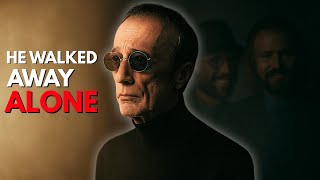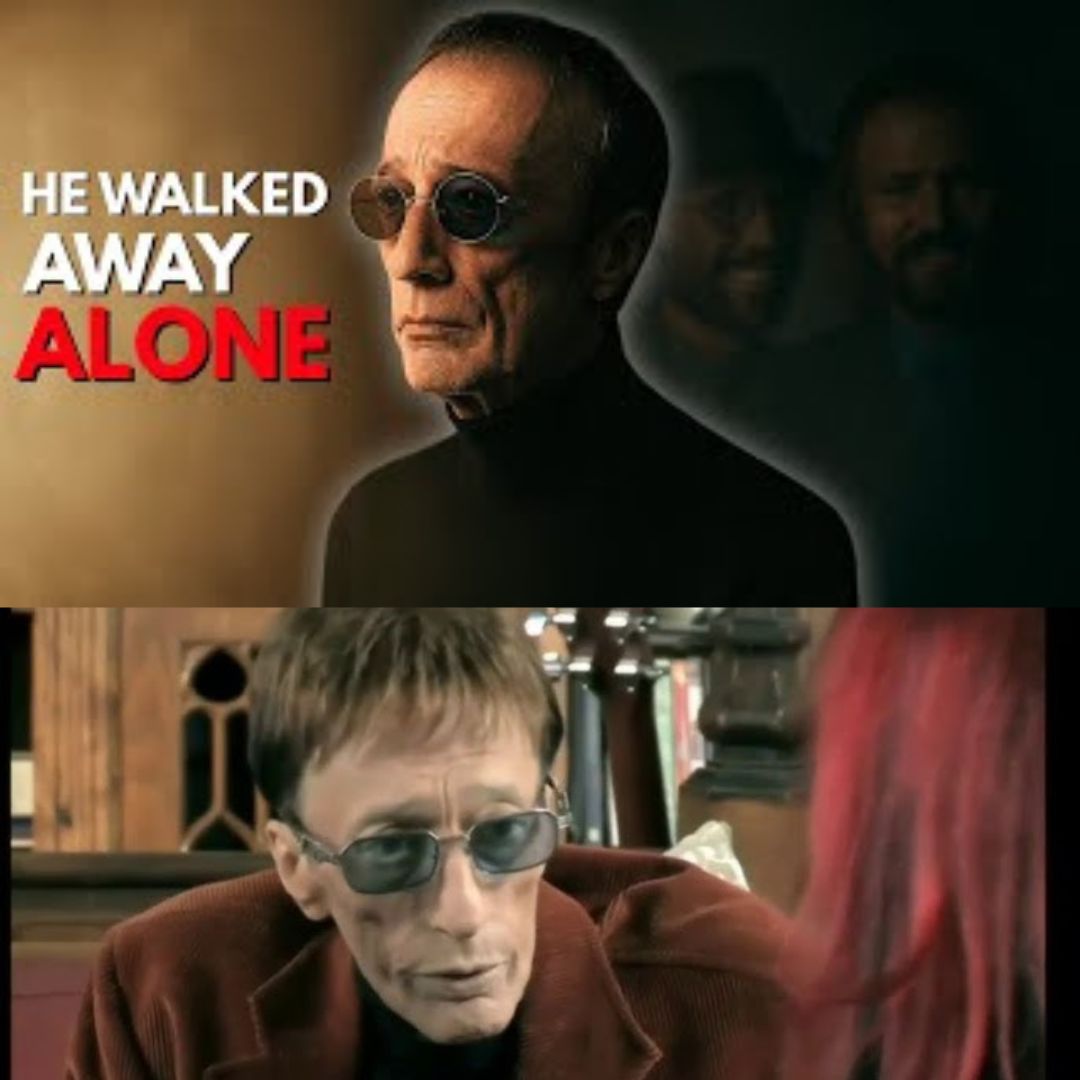
Robin Gibb, the heartbroken twin behind the Bee Gees’ soaring fame, became a tragic symbol of family torn apart by stardom. At the dizzying heights of the Bee Gees’ global domination, he walked away — a move that shocked fans and insiders alike. But why would the voice that bled raw emotion and haunting fragility abandon his legendary brothers? Was it ego, suffocation, or a bitter rivalry that turned family into foes?
To the world, Robin’s voice was unforgettable — showcased in ethereal performances like “I Started a Joke” and “Massachusetts”. That operatic, fragile tone captured hearts, but behind the scenes, Robin was a restless spirit desperate to be more than just one-third of a famed brotherhood.
The seeds of discord were sown early. Born just minutes apart from his twin, Maurice, Robin was always seen as the band’s emotional core, leading with intensity while Barry led with confidence. In a revealing 1969 interview with New Musical Express, Robin confessed: “Sometimes I wonder what we are—a group, or just Barry and the backing.” This doubt festered as Barry pushed for his own tracks, like the lead single “First of May”, while Robin championed “Lamplight.” Their manager sided with Barry, and for Robin, it was the breaking point.
Publicly, Robin declared with pain and defiance: “I don’t see why I should sing only a couple of songs per album.” Then in 1970, he took a bold leap — his solo debut “Robin’s Reign” launched with the haunting hit “Saved by the Bell”, soaring to No. 2 in the UK charts. But success came at a steep cost; the overwhelming pressure led to a nervous breakdown at the tender age of 19.
While Barry and Maurice pushed forward with projects like “Cucumber Castle,” the Bee Gees lost their signature harmony. A quiet reunion followed in 1971 with “Lonely Days”, fueled by their father Hugh’s stern reminder: “You’re stronger together than apart.” Yet beneath the surface, resentment simmered. During the iconic Saturday Night Fever era, Barry’s falsetto became the group’s trademark, while Robin’s solo dreams dimmed. He kept secret notebooks filled with songs yearning for his solo voice—songs that never saw the light on Bee Gees’ albums.
The pain deepened with the rise of youngest brother Andy Gibb, whose stardom under Barry’s production reignited Robin’s feelings of exclusion. In 1981, Robin admitted bitterly: “It’s strange to see your little brother become a star and not know where you fit in.” The relationship was close but laced with rivalry. Andy’s tragic death in 1988 shattered Robin, but also reignited his solo ambitions.
Robin struck back in 1983 with the album “How Old Are You,” featuring the European hit “Juliet.” Critics hailed his matured voice and profound lyricism. By then, Robin sought not rebellion but balance—torn between being part of the Bee Gees’ legacy and asserting his own individual artistry.
Behind the scenes, Robin’s genius shaped nearly every Bee Gees hit — from the pulsating anthem “Stayin’ Alive” to the dramatic “Tragedy.” His melancholic touch tempered Barry’s optimism and Maurice’s experimental spirit, making him the emotional architect of an era-defining sound.
In a final, deeply personal chapter, Robin composed the haunting “Titanic Requiem” in 2010 with his son RJ, releasing it just weeks before his 2012 death. This classical masterpiece revealed a side of Robin beyond pop, a man wrestling with grief, love, and the search for closure.
Known for his hypersensitivity and eccentric loyalty, Robin’s sadness deepened after Maurice’s sudden death in 2003. He described the loss as “like losing half of my own mind. We were twins. No one knew me better. No one ever will.” Yet despite chronic health struggles, music remained his lifeline.
When Robin passed away at 62, a flood of tributes poured in. Sir Paul McCartney called him “one of the most distinctive voices in British music history.” Icons like Coldplay, Adele, and Rufus Wainwright cited his influence. And while no memoir emerged, a haunting home recording of Robin humming an unfinished lullaby surfaced—a ghostly reminder of a voice restless even in silence.
Robin Gibb didn’t leave the Bee Gees out of anger or hate; he left to fly, however fragile his wings. His story is not one of betrayal but of seeking a place to belong and resonate—a testament that sometimes those who walk alone leave the deepest echoes.
